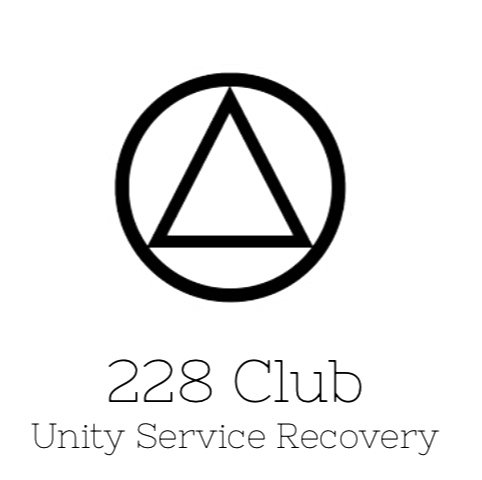FAQs
-
Alcoholics Anonymous is a fellowship of people who come together to solve their drinking problem. It doesn’t cost anything to attend A.A. meetings. There are no age or education requirements to participate. Membership is open to anyone who wants to do something about their drinking problem.
A.A.’s primary purpose is to help alcoholics to achieve sobriety.
-
Members use the Twelve Steps to maintain sobriety. Groups use the Twelve Traditions to stay unified.
A.A.’s Twelve Steps are a set of spiritual principles. When practiced as a way of life, they can expel the obsession to drink and enable the sufferer to recover from alcoholism.
The Twelve Traditions apply to A.A. as a whole. They outline how A.A. maintains its unity and relates itself to the world around it.
The book Alcoholics Anonymous describes the A.A. program of recovery. It also contains stories written by the co-founders and stories from a wide range of members who have found recovery in A.A.
-
We are people who have discovered and admitted that we cannot control alcohol. We have learned that we must live without it to live normal, happy lives.
We are not anti-alcohol and we have no wish to reform the world. We are not allied with any group, cause or religious denomination. We welcome new members, but we do not recruit them.
We do not impose our experience with problem drinking on others, but we do share it when we are asked to do so. We know our own sobriety depends on connecting with other alcoholics.
-
Anonymity is often referred to as the greatest single protection the Fellowship has to assure its continued existence and growth. In stressing the equality of all A.A. members — and unity in the common bond of their recovery from alcoholism — anonymity serves as the spiritual foundation of A.A.
If we look at the history of A.A., from its beginning in 1935 until now, it is clear that anonymity serves two different yet equally vital functions:
Anonymity at the Personal level
At the personal level, anonymity provides protection for all members from identification as alcoholics, a safeguard often of special importance to newcomers.
As valuable as privacy is to new members, most of them are eager to share the good news of their A.A. affiliation with their families. Such a disclosure, however, is always their own choice.
Anonymity at the Public level
At the level of press, radio, TV, films, and on the internet practicing anonymity stresses the equality of all A.A. members. Maintaining anonymity at this level puts the brakes on those who might otherwise exploit their A.A. affiliation to achieve recognition, power, or personal gain.
When using social media and other online platforms, A.A. members are responsible for their own anonymity and that of others. When we break our anonymity in online forums, we may inadvertently break the anonymity of others. Protecting anonymity is a major consideration for A.A. members who are moving online in ever-growing numbers.
-
1. Our common welfare should come first; personal recovery depends upon A.A. unity.
2. For our group purpose there is but one ultimate authority — a loving God as He may express Himself in our group conscience. Our leaders are but trusted servants; they do not govern.
3. The only requirement for A.A. membership is a desire to stop drinking.
4. Each group should be autonomous except in matters affecting other groups or A.A. as a whole.
5. Each group has but one primary purpose — to carry its message to the alcoholic who still suffers.
6. An A.A. group ought never endorse, finance, or lend the A.A. name to any related facility or outside enterprise, lest problems of money, property, and prestige divert us from our primary purpose.
7. Every A.A. group ought to be fully self-supporting, declining outside contributions.
8. Alcoholics Anonymous should remain forever non-professional, but our service centers may employ special workers.
9. A.A., as such, ought never be organized; but we may create service boards or committees directly responsible to those they serve.
10. Alcoholics Anonymous has no opinion on outside issues; hence the A.A. name ought never be drawn into public controversy.
11. Our public relations policy is based on attraction rather than promotion; we need always maintain personal anonymity at the level of press, radio, and films.
12. Anonymity is the spiritual foundation of all our traditions, ever reminding us to place principles before personalities.
-
1. We admitted we were powerless over alcohol — that our lives had become unmanageable.
2. Came to believe that a Power greater than ourselves could restore us to sanity.
3. Made a decision to turn our will and our lives over to the care of God as we understood Him.
4. Made a searching and fearless moral inventory of ourselves.
5. Admitted to God, to ourselves, and to another human being the exact nature of our wrongs.
6. Were entirely ready to have God remove all these defects of character.
7. Humbly asked Him to remove our shortcomings.
8. Made a list of all persons we had harmed, and became willing to make amends to them all.
9. Made direct amends to such people wherever possible, except when to do so would injure them or others.
10. Continued to take personal inventory and when we were wrong promptly admitted it.
11. Sought through prayer and meditation to improve our conscious contact with God as we understood Him, praying only for knowledge of His will for us and the power to carry that out.
12. Having had a spiritual awakening as the result of these Steps, we tried to carry this message to alcoholics, and to practice these principles in all our affairs.
-
No! There are no dues or fees to join A.A. We are fully self supporting based on personal contributions. The only requirement for membership is a desire to stop drinking.
